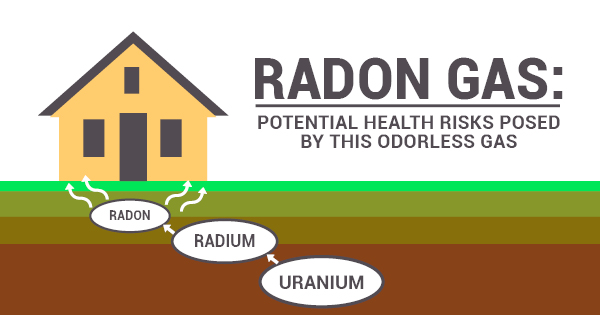Radon is a colorless, odorless, radioactive gas emitted from uranium, a naturally occurring mineral in rocks and soil. Normally, radon rises up through the soil and dissipates in the air outside. Every home in Colorado has some level of Radon and not all are dangerous. Radon becomes a concern, however, when it seeps through openings such as cracks, loose fitting pipes, sump pits, dirt floors, slab joints or block walls and accumulates in the home
The Surgeon General has warned that radon is the second leading cause of lung cancer in the United States today. If you smoke and your home has high radon levels, you’re at high risk for developing lung cancer. Some scientific studies of radon exposure indicate that children may be more sensitive to radon. This may be due to their higher respiration rate and their rapidly dividing cells, which may be more vulnerable to radiation damage. The US EPA estimates that as many as 8 million homes throughout the country have elevated levels of radon. Current state surveys show that 1 home in 5 has elevated radon levels.
Who Can Test for Radon?
A test for radon can be conducted by your home inspector during the home inspection. It is not a standard part of the inspection and will need to be ordered when the home inspection is scheduled. Prices vary so be sure to ask your home inspector for an exact quote. In Colorado radon tests are approximately $495.
What Happens If Elevated Levels Are Found In The Home I’m Thinking of Buying?
If we represent you and elevated levels of radon are found during the inspection, we ask the sellers to mitigate the issue as part of the inspection repair negotiations. Radon mitigation equipment can be installed for as little as $500 in most cases and should bring the levels within an acceptable and safe range. For more detailed information on Colorado homes and radon click here.

